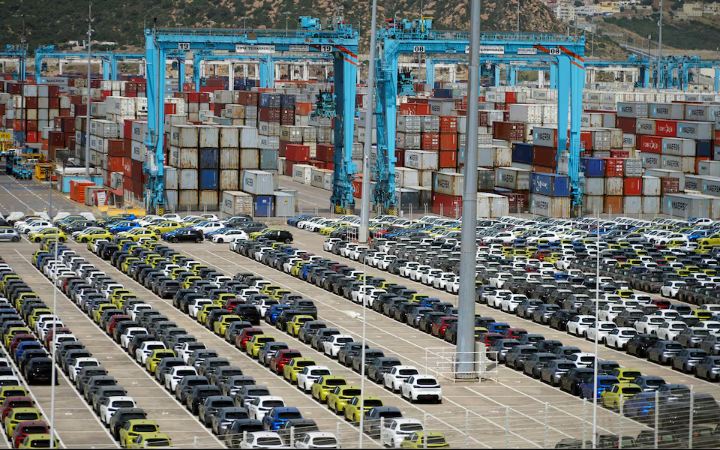The global auto industry is bracing for impact as former U.S. President Donald Trump imposes a 25% tariff on imported cars, a move that has already sent shockwaves through stock markets and trade alliances.
This decision, which takes effect on April 3, is expected to increase car prices, slow down production, and strain international relations—particularly with U.S. allies like Canada, Japan, Germany, and South Korea.
The Impact on Global Trade and Consumers
The U.S. imported a staggering $474 billion worth of automotive products in 2024, with nearly $220 billion coming from passenger cars alone. Mexico, Japan, South Korea, Canada, and Germany, the largest auto suppliers to the U.S., are now scrambling to respond to what many see as a direct economic attack.
European Commission President Ursula von der Leyen criticized the tariffs as “bad for businesses, worse for consumers,” while Canadian Prime Minister Mark Carney called them a “direct attack” on his country’s economy.
Auto Stocks Tumble as Europe Prepares to Retaliate
The announcement sent auto stocks plunging, with billions wiped from the value of European carmakers. German Economy Minister Robert Habeck has called for a firm response from the EU, while French Finance Minister Eric Lombard suggested raising European tariffs in retaliation. The United Kingdom, struggling to boost its economy, is considering reviewing subsidies given to Tesla.
Stock markets in Japan, South Korea, and India also took a hit, with companies like Toyota and Mazda seeing significant declines.
How Will This Affect Car Prices in the U.S.?
For American consumers, the immediate consequence of these tariffs will be higher car prices. Automakers may pass these costs onto buyers, making new cars significantly more expensive. Additionally, supply chain disruptions could lead to longer wait times and fewer vehicle options at dealerships.
Economists warn that higher tariffs won’t necessarily bring manufacturing jobs back to the U.S. Instead, they could result in sluggish sales, higher financing costs, and potential job losses within the industry.
Trump’s Justification and Threats of More Tariffs

Trump argues that the tariffs are meant to revive American manufacturing and reduce the trade deficit. However, critics point out that they may harm economic growth rather than stimulate it.
In a recent Truth Social post, Trump even threatened harsher tariffs if the EU and Canada retaliate, stating:
“If the European Union works with Canada to do economic harm to the USA, large-scale tariffs, far larger than currently planned, will be placed on them.”
This escalation raises concerns about a prolonged global trade war, further destabilizing markets.
Final Thoughts: What’s Next for the Auto Industry?
With retaliatory measures from Canada, the EU, and other major economies on the horizon, the auto industry faces an uncertain future. This move could lead to higher consumer costs, weakened trade relationships, and a prolonged economic standoff between major global powers.
As the situation unfolds, industry leaders and policymakers will need to navigate the fallout carefully—or risk further damage to the already fragile global economy.



